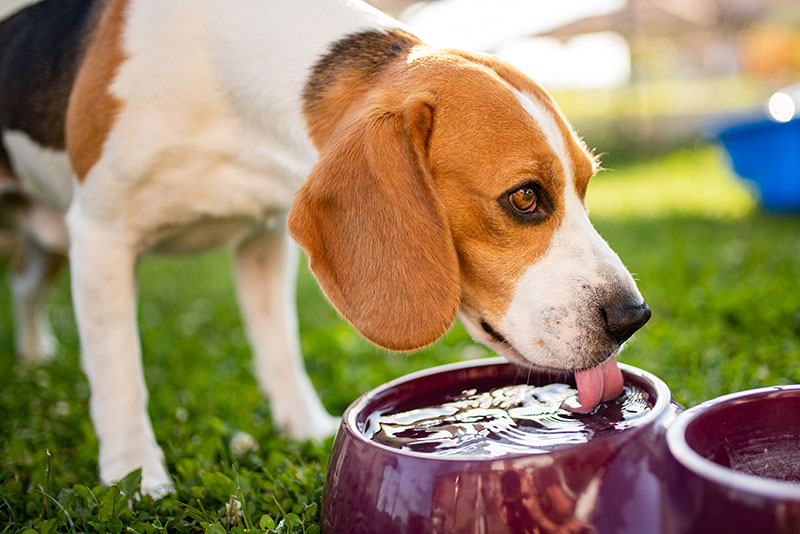
ASPCA Shares Essential Pet Safety Tips for Coping with Extreme Heat
As the Greater Houston Area braces for a heat advisory this week, with the heat index anticipated to hit a scorching 111 degrees in some regions, the American Society for the Prevention of Cruelty to Animals (ASPCA) shares crucial pet safety tips for the hot weather.
-
Plan a visit to the vet for your pets, particularly for heartworm screening if they're not on a year-round preventative medication.
-
In the hot or humid outdoors, ensure your pets have plenty of fresh, clean water to prevent dehydration. Provide a shady refuge from the sun and don't over-exercise them. Keep them indoors when the temperature reaches extreme highs.
-
Understand the signs of overheating in pets, including excessive panting, difficulty breathing, increased heart rate, drooling, weakness, dizziness, seizures and bloody diarrhea or vomit, along with an escalated body temperature surpassing 104 degrees.
-
Never abandon your animals alone inside a parked vehicle. The consequences can be lethal and could amount to a breach of the law in certain states.
-
Recognize pets with flat faces such as Pugs and Persian cats, senior pets, those who are overweight, and pets with heart or lung diseases are more prone to heatstroke. Keep these pets in air-conditioned rooms for their comfort.
-
When around a pool or open water, keep an eye on your pets. Always provide fresh water, gradually introduce your pets to swimming and ensure they wear flotation devices when on boats. Rinse off after swimming to clean off chlorine or salt.
-
Keep all unscreened windows or doors in your home closed and ensure adjustable screens are secure to protect pets from falling out.
-
Trim your dog’s longer hair—but avoid shaving. Regular cat brushing can help prevent heat-related issues.
-
Avoid letting dogs linger on hot asphalt to protect their paws from getting burnt and their bodies from overheating.
-
Exercise caution with use of herbicides, insecticides, citronella candles, tiki torch products and insect coils.
-
Consider the plants in your yard or garden for possible toxic effects on your pets.
-
Maintain dietary discipline for your pets to avoid ingestion of possibly harmful food. Also, keep alcoholic beverages away from pets.
-
Avoid using fireworks around pets to prevent burns, traumas and inducing fear.
Should you suspect that your pet has ingested something potentially toxic, please contact your veterinarian or the ASPCA Animal Poison Control Center at 888-426-4435 immediately.
With these tips, you can ensure that your furry friends stay safe, healthy and happy throughout the hot summer months, especially during heat advisories.
 Tiffany Krenek has been on the My Neighborhood News team since August 2021. She is passionate about curating and sharing content that enriches the lives of our readers in a personal, meaningful way. A loving mother and wife, Tiffany and her family live in the West Houston/Cypress region.
Tiffany Krenek has been on the My Neighborhood News team since August 2021. She is passionate about curating and sharing content that enriches the lives of our readers in a personal, meaningful way. A loving mother and wife, Tiffany and her family live in the West Houston/Cypress region.

